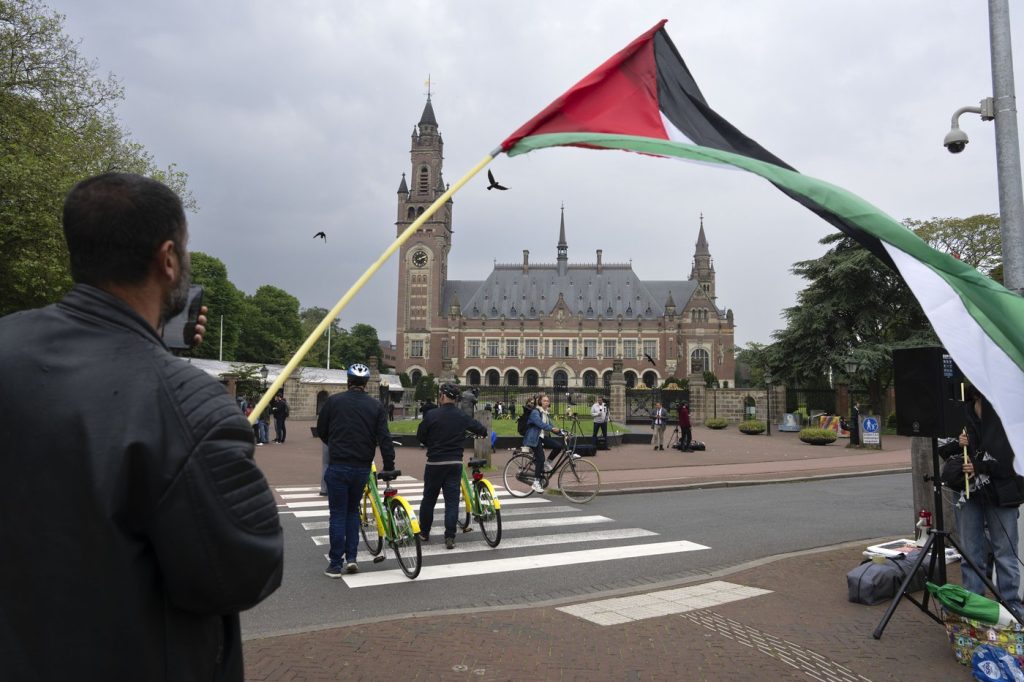The International Court of Justice (ICJ) in The Hague, Netherlands, commenced hearings on Monday to evaluate Israel's legal obligations concerning humanitarian assistance to Palestinian civilians in the occupied territories. This inquiry, which has drawn significant attention amidst the ongoing conflict in Gaza, follows a request from the United Nations General Assembly made last year.
The General Assembly resolution, sponsored by Norway, called for an advisory opinion from the ICJ regarding Israel's responsibilities to "ensure and facilitate the unhindered provision of urgently needed supplies essential to the survival of the Palestinian civilian population." This non-binding opinion aims to clarify Israel’s legal obligations under international law, particularly in light of its recent actions in Gaza.
Since March 2, Israel has imposed a blockade on food, fuel, medicine, and other humanitarian supplies, exacerbating the already dire situation for civilians in Gaza. The blockade has led to a near collapse of the humanitarian aid system, with the World Food Program reporting last week that its food stocks have been depleted, affecting hundreds of thousands of Palestinians who rely on this aid for sustenance. Many families are struggling to provide adequate nutrition for their children amid these conditions.
The hearings included participation from various states and organizations, with the United Nations scheduled to address the court first, followed by representatives from Palestine. A total of 40 states and four international organizations are slated to be part of the process. Notably, Israel is not expected to present oral arguments but may submit a written statement later. The United States, which opposed the resolution in the General Assembly, is scheduled to deliver remarks later in the week.
Experts have pointed out that while advisory opinions from the ICJ are non-binding, they can carry significant weight in shaping international law and influencing public opinion. According to Juliette McIntyre, an international law specialist, such opinions can provide clarity in negotiations and potentially apply pressure on Israel to lift restrictions on humanitarian aid.
Despite the potential implications of the court's eventual ruling, it is uncertain whether Israel will alter its approach in response. Historically, Israel has claimed that the United Nations is biased against it and has disregarded previous advisory opinions—such as the 2004 ruling that deemed its West Bank separation barrier illegal.
South Africa, a vocal critic of Israel, is scheduled to present its arguments on Tuesday. The country previously accused Israel of committing genocide against the Palestinians during hearings in a separate case, a claim that Israel has vehemently denied. The conflict has intensified since Hamas's attack on October 7, 2023, which triggered a significant military response from Israel and escalated the urgency of humanitarian needs in Gaza.
Israel’s ban on the U.N. Relief and Works Agency for Palestine Refugees in the Near East (UNRWA) has further complicated the provision of humanitarian assistance. The ban, enacted in January, is based on allegations that some UNRWA employees had ties to Hamas, a claim that the agency has rejected as unfounded. Although Israel has provided no definitive evidence to support its claims, it limits UNRWA’s ability to operate effectively in the region, putting at risk the livelihood of millions of Palestinians who depend on its services.
The air and ground conflict in Gaza has had severe humanitarian consequences, with the Gaza Health Ministry reporting over 51,000 killed, predominantly women and children. Israel, on its part, claims to have killed about 20,000 militants, though this figure lacks accompanying evidence. The ongoing violence and the restrictions on humanitarian aid underscore the urgent need for a resolution to the conflict and the necessity to address the increasingly precarious situation faced by the civilian population in the region.










